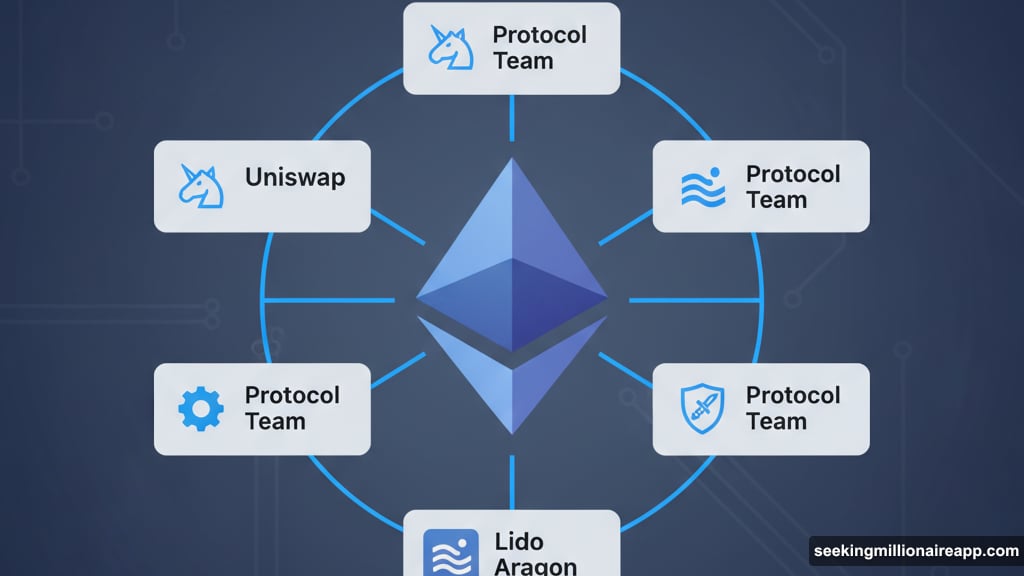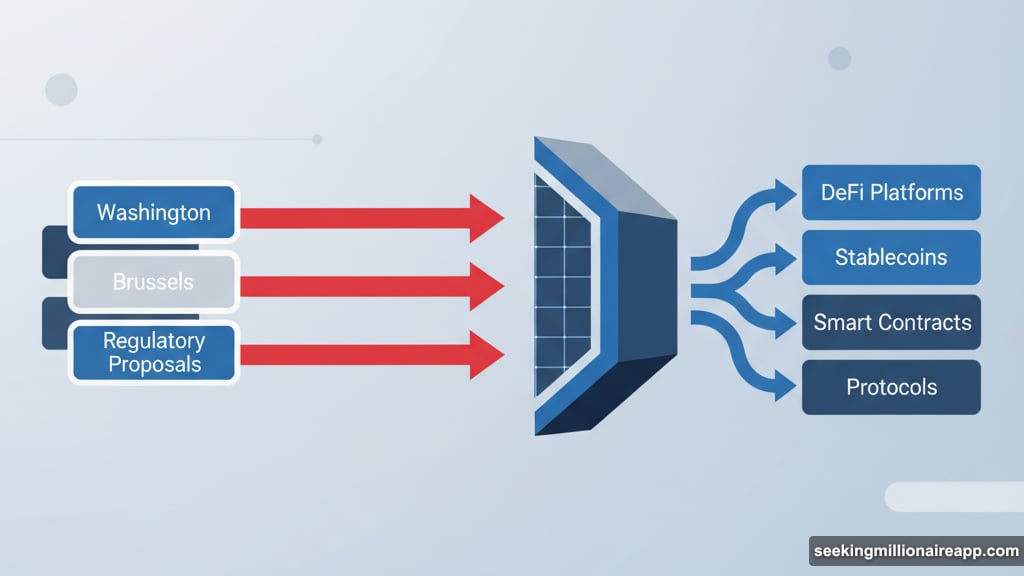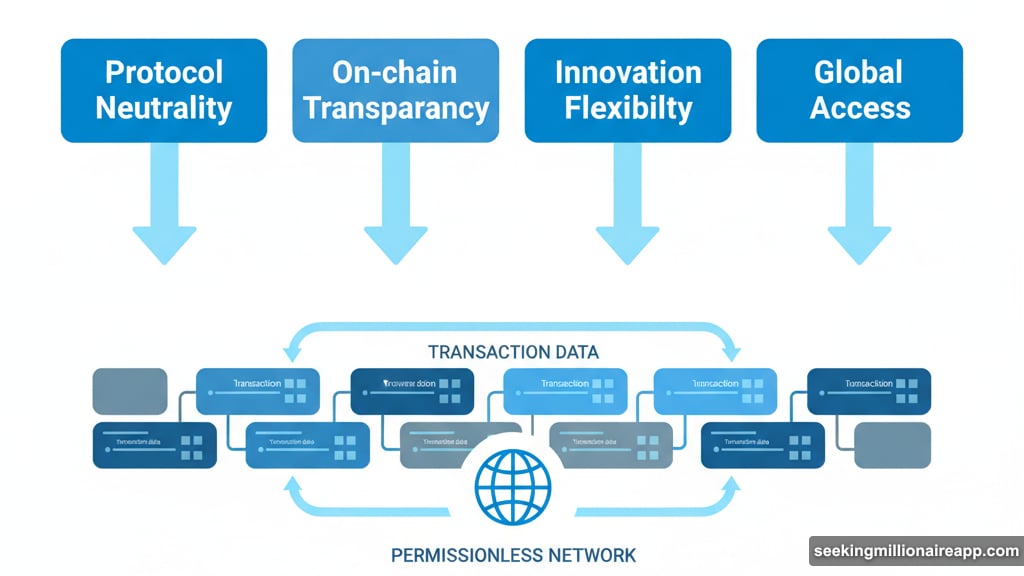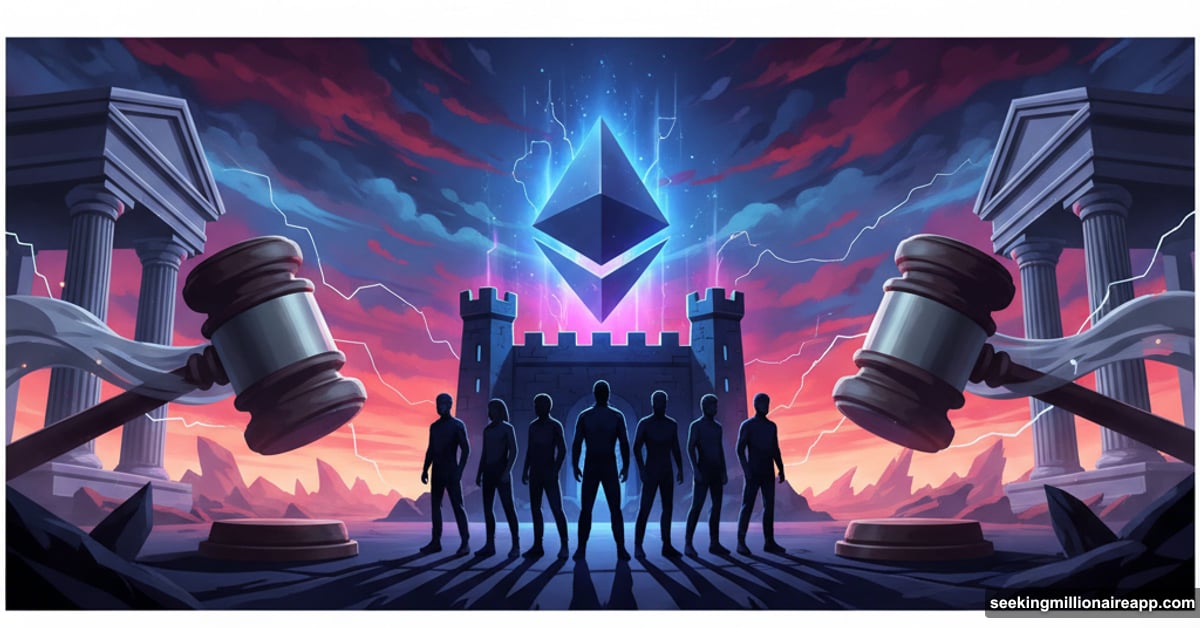Seven of Ethereum’s most powerful protocol builders just did something unusual. They formed an alliance. Not to ship new features or compete for users. But to fight governments trying to regulate their code.
The newly formed Ethereum Protocol Advocacy Alliance (EPAA) represents teams controlling over $100 billion in on-chain assets. This includes household names like Uniswap, Lido, and Aragon. Their message? Policymakers don’t understand how blockchains actually work, and that misunderstanding threatens everything.
Why Protocol Teams Are Suddenly Playing Defense
For years, Ethereum’s core developers stayed out of politics. They built infrastructure. They shipped updates. They left advocacy to exchanges and lobby groups.
That approach no longer works. Regulators in Washington and Brussels stopped targeting just Coinbase and Binance. Now they’re questioning the protocols themselves. DeFi platforms, stablecoins, and smart contract systems face scrutiny that could fundamentally change how they operate.
So the builders decided to speak up before someone else speaks for them.
“We’ve seen firsthand the technical and practical complexity involved in building on-chain systems,” said Anthony Leutenegger, CEO of Aragon. “Bringing together the most credible protocol teams will help ensure regulatory outcomes are workable for the builders moving this space forward.”
Translation? Stop making laws about technology you don’t understand.

What the Alliance Actually Defends
The EPAA outlined four core principles that sound simple but carry massive implications.
First, they want protocol neutrality protected. Code itself shouldn’t be regulated. You wouldn’t regulate TCP/IP or HTTP. So why regulate smart contract code that operates automatically without human intervention?
Second, they’re pushing for on-chain transparency standards. Blockchain transactions are already public and verifiable in real time. Instead of creating new compliance frameworks, regulators should leverage what already exists.
Third, they demand flexibility for innovation. Rigid rules written today will constrain systems we can’t yet imagine. The internet succeeded partly because early regulation stayed light. Ethereum’s builders want the same breathing room.
Fourth, they insist on preserving global access. Permissionless networks don’t have borders. Anyone with an internet connection can use Ethereum. That’s a feature, not a bug, and laws shouldn’t break it.
Sam Kim, Chief Legal Officer at Lido Labs Foundation, put it bluntly. “Decentralization is the foundation of Ethereum’s credibility and resilience. Through the EPAA, we’re ensuring that policy recognizes and protects this principle.”
How This Alliance Actually Works

Here’s what makes the EPAA different from typical crypto lobbying. It doesn’t have a central office. No big budget. No hired lobbyists walking the halls of Congress.
Instead, the alliance coordinates with existing advocacy groups like the DeFi Education Fund, the Decentralization Research Center, and the European Crypto Initiative. When policymakers have technical questions, these groups can now connect them directly with engineers who built the systems being discussed.
Think of it as expert testimony, but proactive. Rather than waiting for bad laws to pass and then fighting in court, the EPAA wants to educate lawmakers before votes happen.
“Those who build decentralized systems should help shape the rules that govern them,” said Connor Spelliscy, Executive Director of the Decentralization Research Center.
That philosophy explains Uniswap’s involvement. After battling the SEC over its protocol, Uniswap Foundation’s Brian Nistler recognized that developers need representation early in policy discussions, not just during enforcement actions.
The Timing Tells You Everything
Why now? Because regulation is accelerating globally.
Both US and European officials are drafting frameworks specifically for DeFi. These aren’t vague proposals anymore. They’re detailed rules about smart contract governance, liability for code deployment, and compliance requirements for protocols.
The problem? Many regulators still think of DeFi platforms like traditional financial intermediaries. They assume someone’s in charge. Someone who can freeze accounts, reverse transactions, or comply with court orders.

But that’s not how Ethereum protocols work. Most operate autonomously once deployed. No single entity controls them. Users interact directly with smart contracts, not companies.
Policymakers struggling with this reality might craft laws that simply don’t function as intended. Worse, they could inadvertently make decentralized infrastructure illegal or economically unviable.
What Happens Next
The EPAA currently includes seven founding members. But the alliance is designed to grow. Other protocol teams can join as regulatory pressure spreads beyond the US and Europe.
However, this isn’t a silver bullet. Changing minds in government takes time. Plus, some policymakers view decentralization itself as the problem, not a feature to preserve.
Still, the alliance brings something new to crypto policy debates: credibility from builders who actually ship code. Not investors. Not exchanges. The engineers who created systems now securing hundreds of billions in value.
Whether that credibility translates into better policy remains uncertain. But Ethereum’s core teams decided staying silent was riskier than speaking up.
The stakes are clear. Get policy wrong, and you don’t just hurt innovation. You potentially break infrastructure that millions of users depend on daily. The EPAA exists to make sure lawmakers understand that before it’s too late.
